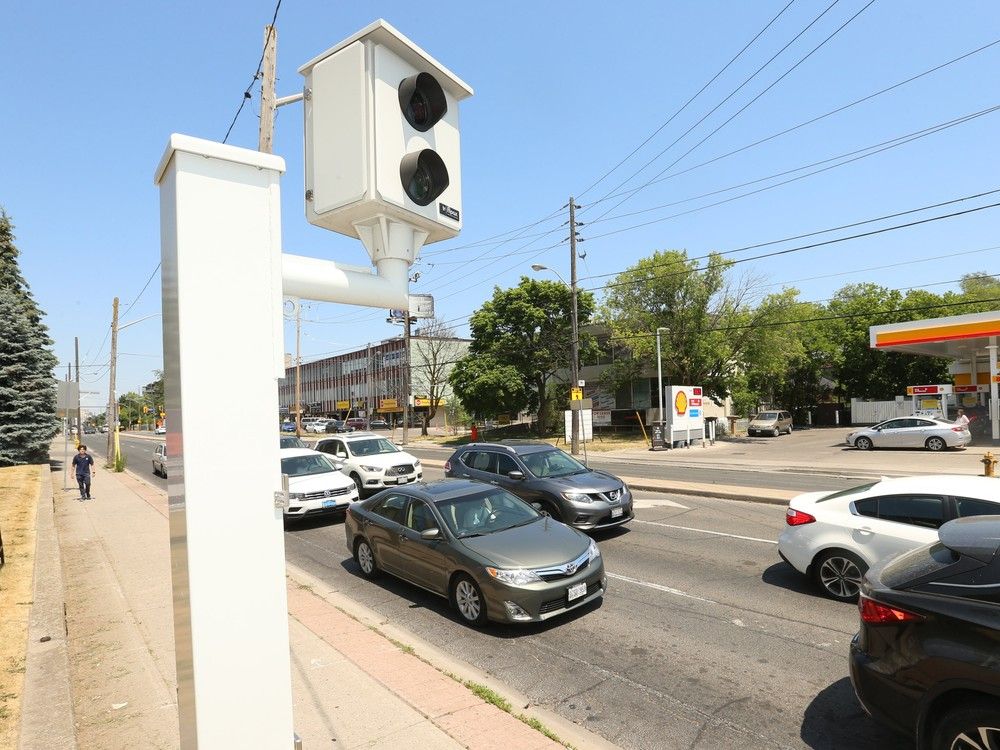
Two Toronto drivers who saw their red light camera tickets put on hold because it took too long to get their cases into court are out of luck because the justice of the peace who handled them initiated the stays himself and didn’t give the city a heads-up that he was going to press pause on the charges.
The justice of the peace, who is not named in the appeal, stayed cases against Henry Shein Canada and Lisa Lee-Tucker because they exceeded the 18-month window to get provincial court matters in front of a judge. But the cases against both of them were revived after the city successfully appealed the stays to Ontario’s Court of Justice, which ordered new trials for both drivers.
“What happened here is that the justice went a step too far,” Justice David Rose wrote in a recent decision.
In a precedent known as the Jordan rule, the Supreme Court of Canada set a presumptive ceiling of 18 months for provincial court trials and 30 months for superior court trials, after which delay is considered unreasonable unless exceptional circumstances are proven.
Rose conceded both cases took too long to get to court, saying the justice of the peace was “entirely right that the delay in the cases before him engaged (Jordan) concerns on their face.”
But Rose had problems with the way both cases were handled.
“It was reversible error for the court to initiate a stay of proceedings on its own motion,” Rose said.
“A trial judge must be careful and reluctant to bring their own motions because of a perceived unfairness to one or the other party …The discretion should only be exercised rarely and then with extreme care, so as not to interfere with the adversarial nature of the trial procedure or prejudice the accused.”
Canada and Lee-Tucker’s cases “have a commonality,” which is why the appeals were heard together, Rose said, noting both drivers had someone appear for them at early resolution meetings after requesting them.
Red light camera tickets in Toronto are $325.
Canada got his at 1:33 p.m. on Aug. 23, 2022, in the intersection of Bloor Street and Ossington Avenue. Lee-Tucker got hers at the intersection of Sheppard Avenue and Leslie Street in September 2022.
Canada’s early resolution meeting was slated for July 10, 2024. Lee-Tucker’s was July 17, 2024.
By the time Canada got to court, his ticket was 22 months old.
Fairly early on in his appearance that day, the justice of the peace said, “I do not find that it’s appropriate that these cases proceed. So that’s the angle I’m working at.”
The justice of the peace pointed out there was no need to wait for a Charter challenge when an “abusive process” is clear. “This is not fair play.”
When Canada’s lawyer appeared at the early resolution hearing by telephone, the justice of the peace noted it was Canada’s first time before the court with the charge “well exceeding the Jordan ceiling.”
The justice of the peace used his own common law authority to stay the proceedings. “That’s everything. You may disconnect,” he told Canada’s lawyer on the phone. “There’s no conviction, no finding of guilt. No fine. Drive careful.”
Lee-Tucker’s ticket was also 22 months old by the time her case reached an early resolution hearing.
“I cannot in good conscience accommodate an application, resolution or to be rescheduled in a trial court to add further delay on top of an unlawful delay,” the justice of the peace said at the time, entering a stay on that charge as well.
Lee-Tucker’s husband, Chad, appeared by telephone during the brief court appearance.
“First time before the court. Judicial stay of proceeding applicable. Case collapses,” said the justice of the peace. “You may disconnect.”
The justice of the peace “was clear at the outset of the day that any case that exceeded 18 months of delay would be stayed on the court’s own motion and without one being requested,” Rose said.
But the law indicates it is “essential” that before a judge hears an application to stay charges, the prosecution must be given notice, Rose said.
“Beyond the statutory requirement to give notice before an accused may seek a stay of proceedings it is incumbent on the trial justice to remain impartial as between the prosecution and defence.”
A trial judge “has a duty to see that an unrepresented accused person is not denied a fair trial because he is not familiar with court procedure,” Rose said.
But that must be limited to what is reasonable, Rose said. “Clearly it cannot and does not extend to his providing to the accused at each stage of his trial the kind of advice that counsel could be expected to provide if the accused were represented by counsel. If it did, the trial judge would quickly find himself in the impossible position of being both advocate and impartial arbiter at one and the same time.”
Our website is the place for the latest breaking news, exclusive scoops, longreads and provocative commentary. Please bookmark nationalpost.com and sign up for our daily newsletter, Posted, here.
